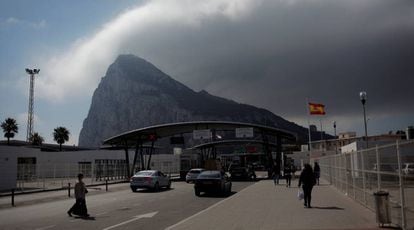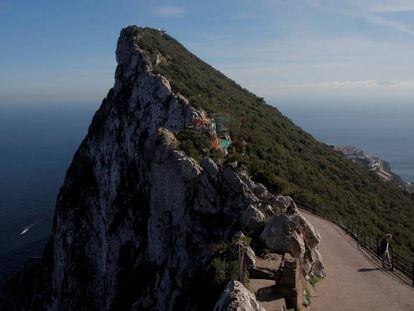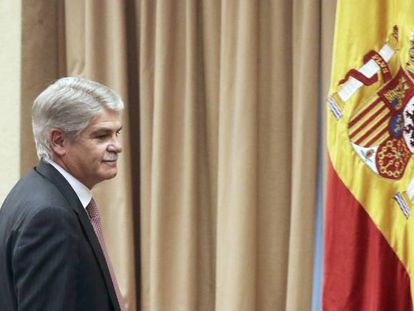Brussels and Netherlands call on UK to tone down rhetoric over Gibraltar
European Commission has requested “dialogue and cooperation” from PM May over sovereignty battle
The European Commission says that it is “100% behind” draft negotiation guidelines drawn up over Brexit, the United Kingdom’s withdrawal from the European Union, despite the framework already having sparked anger among the governing Conservative Party in the United Kingdom and some members of Prime Minister Theresa May’s administration.

The problematic clause for the British government states that “no agreement between the EU and the United Kingdom may apply to the territory of Gibraltar without agreement between the Kingdom of Spain and the United Kingdom.”
Let’s be cool and carry on and not use too harsh language
Bert Koenders, Dutch foreign minister
The overseas British territory, located in the south of Andalusia, has long been a point of conflict between the United Kingdom and Spain, and the issue has already flared up even though the British government only triggered Article 50 – the process to leave the EU – last Wednesday.
Spanish Foreign Minister Alfonso Dastis told EL PAÍS in an interview at the weekend that once Britain exits the EU, “Spain is the Union’s partner in Spain, and in the Gibraltar case the EU is thus forced to take Spain’s side.”
“The proposal is still at the draft stage, but we think it is very positive that the document with the negotiating guidelines reflects Spain’s position,” he said. Madrid views this as a diplomatic victory, and the position has already created unease both in Gibraltar and in London.
The position of the UK on Gibraltar was brought into question on Sunday, when Michael Howard, a former Conservative Party leader, told Sky News that “thirty-five years ago this week, another woman prime minister sent a taskforce halfway across the world to defend the freedom of another small group of British people against another Spanish-speaking country.”
Gibraltar’s sovereignty status ‘is not going to change’ without the consent of Gibraltarians and of the UK
Boris Johnson, UK foreign secretary
The parallels he was apparently drawing between then-Prime Minister Margaret Thatcher’s role in the Falklands conflict, which saw the UK go to war with Argentina over the Falkland Islands, drew accusations of saber-rattling from many commentators, and outright dismissal from others about the possibility that Spain and the UK could get into an armed conflict over the status of Gibraltar post-Brexit.
Speaking in Luxembourg, Britain’s foreign secretary, Boris Johnson, said that Gibraltar’s sovereignty status “is not going to change” without the consent of Gibraltarians and of the UK. Last week, he stated on Facebook that Britain would remain “implacable & rock-like in our support for Gibraltar.”
In response to the controversy, Brussels today called on London for “dialogue and cooperation” on the issue, while other European countries, including old allies of London, are telling the British government to tone down its statements.
“Let’s be cool and carry on and not use too harsh language,” said Dutch Foreign Minister Bert Koenders.
On Monday, when the European Commission’s chief spokesman Margaritis Schinas was asked which side the EC was on in the war between Spain and Britain, he responded: “The European Commission takes the side of dialogue and cooperation, which is our way of doing things.”
“The guidelines presented on Friday have the complete backing of President [Jean-Claude] Juncker and [chief negotiator] Michel Barnier. We will give no more explanations,” he added.
And on Sunday, Foreign Minister Dastis of Spain dined in Madrid with the British secretary in charge of Brexit, David Davis, said sources in the Spanish executive. The event had been planned prior to the escalation of words over Gibraltar.
The meeting was “very friendly and very constructive,” British government sources told Reuters. Asked if London would send military protection to the territory, the reply was clear: “It isn’t going to happen.”
English version by Susana Urra.
More information












































